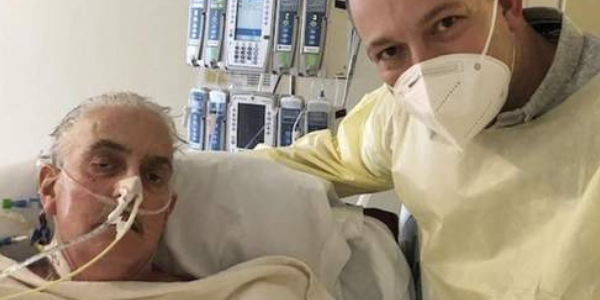US Man Dies 2 Months After Receiving First Pig Heart Transplant

After two months of receiving the very first pig heart transplant, 57-year-old David Bennett died and the announcement of his death was made Wednesday at Maryland hospital, which was where the surgery was performed.
Bennett, who was the first person to undergo the groundbreaking experiment, died Tuesday at the University of Maryland Medical Center. While the cause of his death was not announced, the doctors stated that his condition started worsening some days before his death. There are several risks with receiving an organ transplant, which included rejection, infection and other complications.
The hospital received gratitude from Bennett’s son for presenting this experiment to the family’s attention. Being that this experiment was the last chance for the family, they hoped it would be a huge step in the direction of helping to prevent organ shortage.
Maryland School of Medicine released a statement from the son, David Bennett Jr saying that he was “grateful for every innovative moment, every crazy dream, every sleepless night that went into this historic effort.” He continued by stating that he hoped that this would be the beginning and not the end.
Bennett, who will surely be remembered throughout time as the first candidate for the experiment, was chosen for this procedure because he was completely out of options. His circumstances made him ineligible for a human heart transplant and he was bedridden and on life support.
For decades doctors have hoped to use animal organs for life-saving transplants and, on January 7, they conducted their first animal organ transplant. Following the operation, Bennett’s son spoke to The Associated Press and said that his father was completely aware that the transplant might not be a success.
In the past, the attempts to conduct such transplants also known as xenotransplantation constantly failed because the patients’ bodies quickly rejected the animal organ. However, Maryland surgeons had a better result when they used a heart from a gene-edited pig.
[ads2]
Reportedly, scientists had modified the animal to replaced the pig genes with human genes to help the body accept the organ. If the pig gene hadn’t been removed, it would cause another quick rejection.
At the beginning of receiving the pig heart, Maryland hospital released frequent updates that Bennett showed signs of recovering slowly. In a video released by the hospital, Bennett was seen watching the Super Bowl while he was in the hospital bed and worked with his physical therapist.
This experiment proved more effective than the other xenotransplantation, which included California infant Baby Fae, dying 21 days after receiving a baboon’s heart in 1984.
Dr Bartley Griffith, the surgeon who performed the transplant at Baltimore hospital, stated that Bennett’s death brought devastation and the elderly man had “proved to be a brave and noble patient who fought all the way to the end”.
There is a great need for organs and the scarcity of organs continues. In 2021, there were more than 41,000 transplants performed in the United States, which included 3,800 heart transplants. However, there were more than 106,000 people placed on the national waiting list with thousands dying each year before they are given an organ and thousands of others not being added to the list due to the long and unpredictable wait.
Reportedly, the pig heart transplant was allowed by the Food and Drug Administration under “compassionate use” rules for emergency.
According to Bennett’s doctors, the elderly man had heart failure, an irregular heartbeat and a history of not following medical instructions. He was ineligible for both a human heart transplant that required strict use of immune-suppressing medicines and an implanted heart pump.
[ads2]
Dr Muhammad Mohiuddin, who is a scientific director of the Maryland university’s animal-to-human transplant program stated that Bennett’s heart transplant from the “genetically modified pig heart can function well within the human body while the immune system is adequately suppressed”.
Subsequently, it is now being questioned if enough knowledge was gained from Bennett’s experience and the other recent gene-edited pig organs experiment to persuade the FDA to allow a clinical trial with organs that are less likely to be fatal if they fail.
Surgeons at New York University got permission twice last fall to observe gene-edited pig kidneys temporarily attached to blood vessels outside the body before they ended life support. Similarly, the University of Alabama at Birmingham surgeons transplanted two gene-edited pig kidneys into a male patient who was brain dead. This was a test procedure of what they hoped to do with a living patient later in 2022.
While parts of pigs have always been used in some human medicine, such as pigskin and the implantation of pig heart valves, transplanting organs were not so easy.
Revivicor, a subsidiary of United Therapeutics, is the source of where these gene-edited pigs come from. This company is among several others that are working on developing fully functioning pig organs for the sole purpose of human transplant.
RELATED: Russian Soldier Begs For His Life As He Is Dragged And Placed Beside His Dead Friends In Ukraine
RELATED: Family Demands Justice For ‘Marlanda Goulbourne’ Who Died At The Victoria Jubilee Hospital
RELATED: Married Jamaican Pastor Breaks Older Woman’s Heart in Mexico



